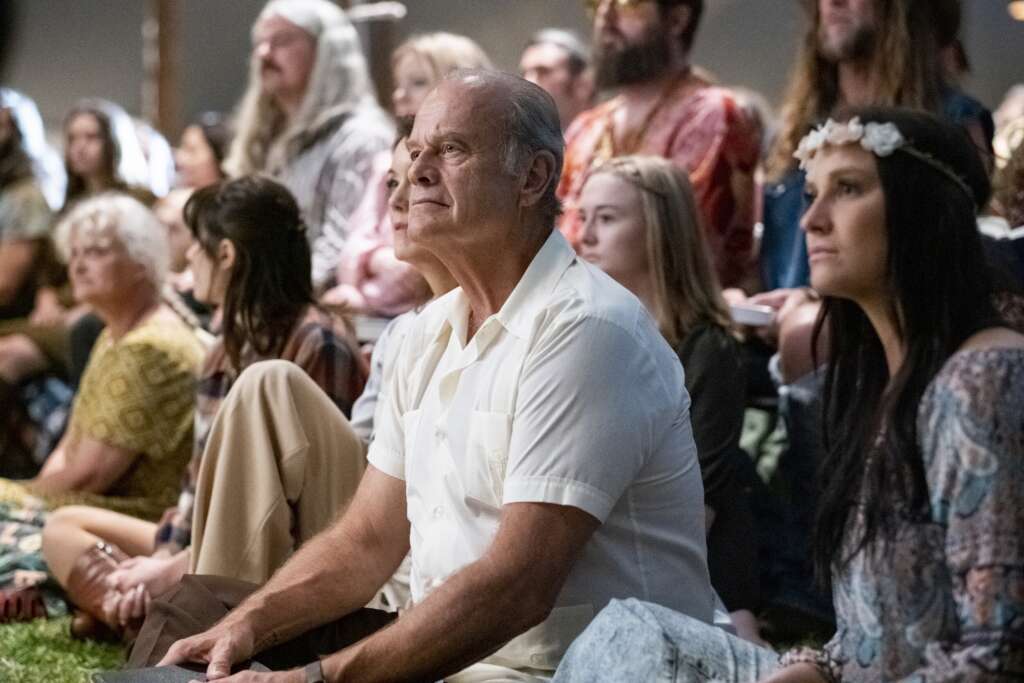The long-awaited Jesus Revolution movie is finally out and available in cinemas worldwide. The 120-minute movie which was produced by Kingdom Company, comes with great inspiration and lessons mostly those on revival.
At the periphery of JESUS REVOLUTION, witnessing the mass baptisms and conversions is a reporter from TIME Magazine, who considers himself a neutral observer. At the start, he’s a little skeptical, but in the end, he admits he’s deeply moved by what he’s seen: “Our country is a dark and divided place these days. And there’s hope in that tent. A kind of love and unity…that I can’t fully explain. And it’s not just here. It’s spreading.”
JESUS REVOLUTION may be “historical nonfiction,” but its message has never been so urgently needed today. It is a raw, real-life story about how God calls and redeems the outcasts.

In the early 70s, the thought of a Christian hippie was an oxymoron. Hippies were considered liberal radicals, and anti-war fanatics, who lived in communes and indulged in erratic and dangerous behavior. How could God save the hippies? Nevertheless, a revival began in hippie communes.
“It was 1970, and people who looked like us, with long beards and coming out of the drug culture, just really scared church people,” recalls Tommy Coomes, one of the musicians in the early Christian music group “Love Song,” a band depicted in the film.
And he was right. The hippies did scare church people.
But this is what the real reporter wrote in the 1971 cover story for TIME:
“Jesus is alive and well and living in the radical spiritual fervor of a growing number of young Americans who have proclaimed an extraordinary religious revolution in his name. Their message: the Bible is true, miracles happen, God really did so love the world that he gave it his only begotten son…It is a startling development for a generation that has been constantly accused of tripping out or copping out with sex, drugs and violence. Now, embracing the most persistent symbol of purity, selflessness and brotherly love in the history of Western man, they are afire with a Pentecostal passion for sharing their new vision with others. Fresh-faced, wide-eyed young girls and earnest young men badger businessmen and shoppers on Hollywood Boulevard, near the Lincoln Memorial, in Dallas, in Detroit and in Wichita, “witnessing” for Christ with breathless exhortations.”
“In America, we’ve had four great spiritual awakenings,” says Greg Laurie, the American pastor of Harvest Christian Fellowship and author of the memoir Jesus Revolution (Baker Publishing Group, 2018). “The Jesus Movement was the last. I feel like we’re overdue for another. And I’m hoping that this film will inspire people to pray, ‘Lord, do it again.’ Because the fame of revival spreads the flame of revival. Yes, people will go to this movie, they’re going to be entertained. They’re going to laugh. They’re probably going to cry. They’re going to be deeply moved.”
“The world needs this movie right now,” says DeVon Franklin, who plays the reporter in JESUS REVOLUTION, “because this movie can actually start the revolution again.”
FILMMAKERS INSPIRATION
Five years before Jesus was on the cover of TIME, there was a different image. In April 1966, the TIME cover had no picture, just text: IS GOD DEAD?
When Jon Erwin learned about this, he had one question. What happened between those five years to create such a cultural difference?
“I found an original version of this [1971] magazine on eBay,” says Erwin. “And I bought it, and I read it—it’s this 10-page article of everything we need today. It just began a seven-year obsession with revival and with the Jesus Movement…So over the course of making films like AMERICAN UNDERDOG or I STILL BELIEVE or even I CAN ONLY IMAGINE, it’s been JESUS REVOLUTION that I’ve been dreaming of doing.”
The Erwin Brothers are known for their inspiring family dramas, including I CAN ONLY IMAGINE and AMERICAN UNDERDOG. JESUS REVOLUTION is the first Kingdom Story Company project where Jon Erwin is directing without his brother Andrew and is instead partnering with co-director Brent McCorkle.
McCorkle was hooked as soon as he saw the script: “It was some of the strongest writing I’d seen in a Kingdom title,” he says. “The theme is loving the other, creating a place of belonging, compassion, understanding, empathy for people that don’t look like you, maybe don’t carry the same beliefs as you.”





